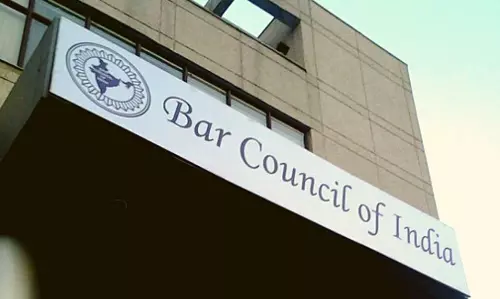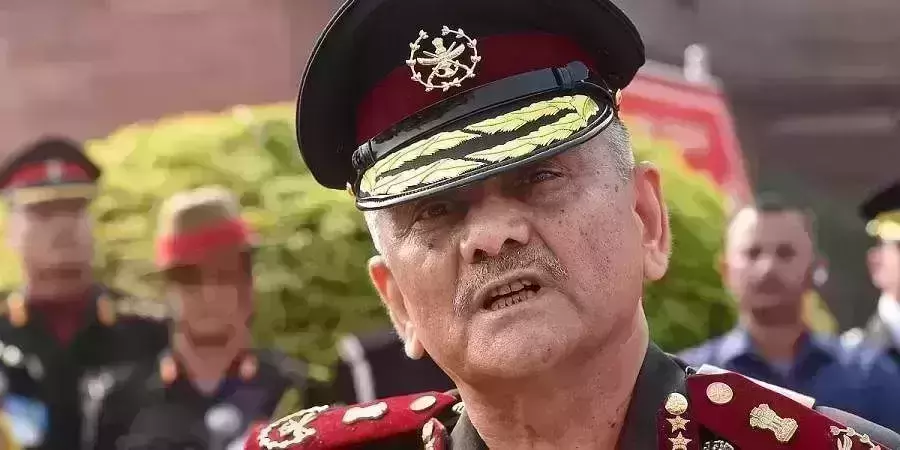
The cry of Ghouta
text_fieldsThe civil war in Syria has been continuing for the past eight years killing more than 4 lakh innocent civilians young and old alike.
The genocide in eastern Ghouta, a suburb of the country’s capital of Damascus has turned one of the most tragic experiences. The place, spread over110 square kilometers has now turned into a ghost town in the bombings carried out by Syrian dictator Bashar al-Assad with the help of Russian military forces to crush even the last voices of dissent raised against his despotism. United Nations Secretary General Antonio Guterres came forward urging a halt to the attacks in Ghouta which has now become the ‘hell on Earth’ after the nine-day long bombings. Agreeing to the request by the UN, Russia has ordered a daily interval of five-hour truce for the attacks. This relief has been allowed for carrying out the last rites of about 600 people who were killed in the attack last week and also for safely evacuating the remaining civilians and those injured in the attack. Currently, about 3, 93, 000 people are trapped in the region. World Health Organisation says that about thousands seriously injured await medical treatment in the war-torn area. Voluntary organisations ask whether there was any use of such a truce in a war zone which is now totally destroyed. According to them, nothing much can be done for carrying out an efficient rescue operation or for supplying food and water to the people in a mere five hours during the day.
Also, when Russia reveals its helplessness about the moves of Bashar’s army in the case of truce, apprehensions overrule the little relief left. Reports of Bashar’s warplanes targeting Ghouta, have been surfacing even after the announcement of the truce. While the government raises allegations that rebel organisations such as Jaish-e-Islam and Hayat Tahrir al Sham (HTS) an outfit affiliated to Al Qaeda and terrorist groups were waging war against the goals of the government, the militant groups allege that Bashar’s forces have still not put their weapons down. In short, the ceasefire has not been implemented on the ground. Ghouta which is located near the Syrian capital refuses to bow down before the dictator Bashar despite his killing of lakhs of civilians. Even when the neighboring regions of Barsa, Khabun and Wadi Burdi surrendered, Ghouta, the agricultural belt of Syria also known as the ‘Food bowl of Damascus’, refused to fell into the hands of Bashar. To flee war, people from neighbouring areas migrated to this place thanks to its thriving agriculture. Seeing it as a threat, Bashar was planning for the total destruction of one of the remaining green belts in Syria. Of over six hundred civilians killed in the attacks in the last few days carried out with the support of Russia, the majority were women and children. When the sanction which began in 2012 on Ghouta which had been home to nearly ten million of people, enters its sixth year, the fact that only four lakh people are left there at present, proves the depth of Bashar’s cruelty.
Extremely tragic images of young children who plead for their lives have been dominating the newspaper headlines for the past several days and making world sleepless. It was amidst this that the UN intervened. But what remains to be seen is whether Ghouta will be free from Bashar’s tyranny after this intervention. Like in the case of any civil war, it was the external forces that aggravated the situation in Syria right from the beginning. The Shia Alawi Baath Socialist government in Syria has always sided with Russia in the big-power equation. The US plan is to arm the Kurds who dominate the northern regions of the country and use them as a sword raised over the country. Since the Kurd presence in the region that lies adjacent to their border upsets Turkey, they too, along with Saudi Arabia and Qatar back the anti-Assad rebel group.
The anti-Sunni regimes of Iran, Iraq and Lebanon extend support to Bashar who belongs to the Shia Alavi sect. Syria turned into a hell for its people when the country got entangled in the tug of war between these powers. The people of Syria will be saved only if they take a united decision putting humanity on top priority, to wash off the stains of the sin of killing thousands including young children all these years. Bashar, the extremely callous ruler has been - violating national and international laws as well as decency - crushing his people who have been striving for democracy under the influence of the Jasmine Revolution in the Arab world.
Still, the concern of the UN appears to be not about reining him in directly, but about the possible upsetting of the political balance and the latter apparently deters UN from firm decisions. But voluntary organizations working in the battle-front report that the current five-hour cease-fire will not only be insufficient to rescue the entire populace from the disaster area, but may even drag them into a worse quagmire in the open land. They are clamouring that when the situation is deeply complicated with food shortages, suffering of children dying of malnutrition, shortage of medical equipment and chaotic vehicular traffic, Ghouta can be saved from terrible tragedy only with a ceasefire lasting at least a month. Will the world be prepared to listen to this, or will Syria, following Afghan and Iraq, also end up as a cry from wilderness?























